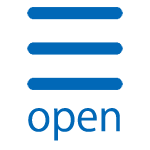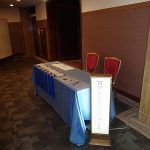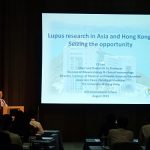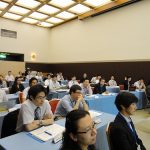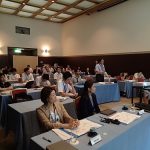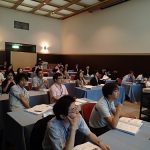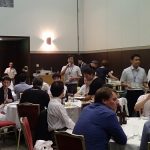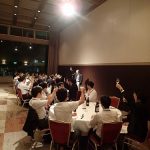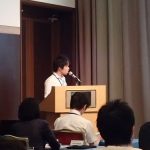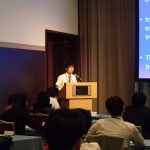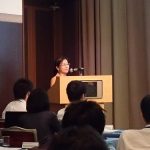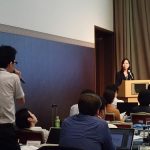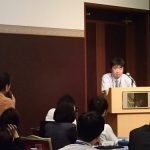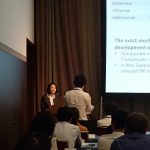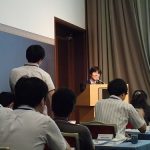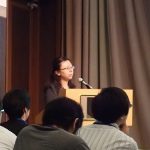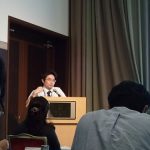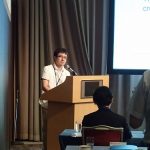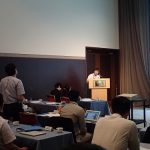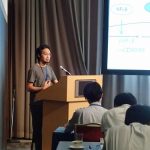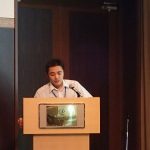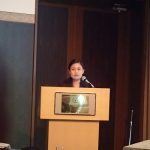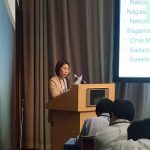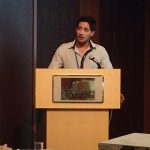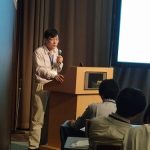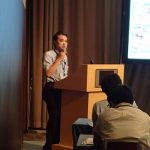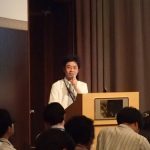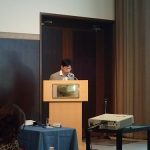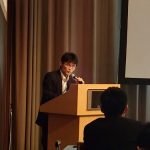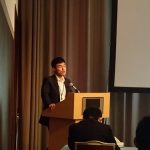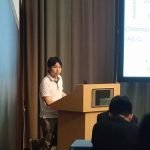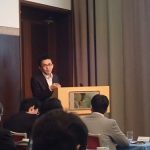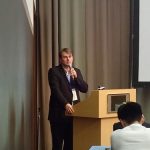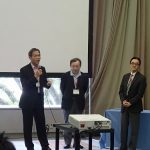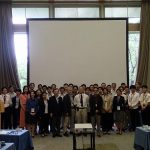- JCR International School 2017
- JCR International School 2016
- JCR International School 2015
- JCR International School 2014
- JCR International School 2013
JCR International School 2013
Dates: August 1 (Thu.) ‐ 3 (Sat.), 2013
Place: Karuizawa Prince Hotel West, Nagano, Japan
Contents
Participants Voice
Naoki Kimura Japan
It was a great pleasure to participate in JCR international school. I had four good things in this seminar. Firstly, I could acquire basic skills of presentation. I used “English for Oral and Poster Presentation” written by C.S.Langham for a reference book in preparing and modifying my presentation. This book enabled me to learn much more from this seminar. Secondary, I learnt from the speakers of foreign countries, especially the South-East Asian countries, about several medical issues they were facing. I was impressed with their great effort to solve their problems. Thirdly, I was able to become friends with researchers of the same generation. Talking with them was stimulating and inspired a feeling of enthusiasm for a research activity. Finally, through talking and discussing in English, I could slightly overcome the fear of speaking in broken English. Of course, it is important to know and use right English. But, if you don’t speak English, even broken, you can’t know right English. I would like to make the best of chance to use English, and keep my passion for rheumatology.
Akihiro Nakamura Japan
This is the first time for me to present my presentation in English, furthermore, in front of many foreign rheumatologists! I was very nervous at first, but I was gradually becoming more relaxed as my presentation went on. Although my English skill is not so good, I enjoyed the discussion with the other doctors. I had many questions about Behçet’s disease (BD), because BD has a variety of clinical presentations depending on geographic regions. The doctors from foreign countries seemed to be very interested in the diagnostic criteria for intestinal BD and the rate of uveitis in Japan, since the intestinal BD is significantly less abroad and uveitis is quite rare in the USA.
The doctors that participated in this school showed their presentations beautifully and they were very stimulating for me. It was a meaningful and wonderful opportunity to share this time together.
At night, we enjoyed great foods and drinks in the hotel. We introduced ourselves to each other and I could make some foreigner friends. It was quite amazing!
Thank you very much for giving me such a great opportunity. I’ll never forget the International School Conference of 2013.
Takahisa Gono Japan
I attended the JCR international school which was held in Karuizawa. Karuizawa was nice as the climate was cool. I felt relaxed, although I felt nervous before my presentation had been completed. I presented my research about an association between anti-NMDA receptor antibodies and systemic lupus erythematosus. I managed to respond to audiences’ queries about my presentation. I thought that I should practice further listening in English because I couldn’t exactly understand what questioners speak in English. I was interested in other researchers’ presentations. In the JCR international school, people from other countries as well as Japanese attended. I enjoyed an international exchange through dinner and drinking parties. I got motivated to conduct basic or clinical research. I also thought that presentations in English were important for transmitting medical information to the world. I greatly appreciated my tutor, facilitators and officers for giving me this opportunity. I would like to suggest that the JCR holds this international school annually in the future and that many young investigators will attend this international school.
Kaoru Minegishi Japan
It has been a great pleasure for me to attend this seminar. Over 20 participants joined JCR international school. This intensive course is designed for fellows to exchange our experiences in clinical and translational research for rheumatology. The educational activities included keynote lecture. Every participant had a presentation. The presenting topics of first session were pathogenesis and treatment for polymyositis, Behçet’s disease and systemic sclerosis. The presentations were followed by discussion with the audience.
Our second session was focused on systemic lupus erythematosus. I talked about biological DMARD-induced lupus/vasculitis in patients with rheumatoid arthritis (RA). I have learned at Leeds for 1 year. The Leeds Teaching Hospitals NHS Trust is the largest tertiary biological DMARD centre for RA in the UK, with several years of exposure to anti-TNF therapies.
The following sessions were also very interesting. Each session stimulated a lot of questions and debate. The final session was specifically about T cells. I think this experience will provide us with basic science and clinical research investigations.
I am struggling to speak English fluently. However, this seminar allowed us to speak “broken English”. I really enjoyed 3 days and learned quite a lot. We had a chance to talk about other cultures through new international friends. I hope to use all gained knowledge from the seminar to further my clinical and research work. I appreciate all the efforts of the committee members.
Masahiro Ishikawa Japan
This meeting is an innovative forum for learning about the latest research and discoveries in various aspects of the rheumatology with foreign and Japanese young researchers for three days in English. About 25 participants attended this meeting and whose specialties were rheumatology and orthopedics. I got a chance to attend this meeting and it was an impressive and really exciting experience for me.
At the beginning of this meeting, Dr. Takeuchi, who is a chairperson and Professor in Department of Keio University, “Let’s talk and discuss with broken English”, and after that the participants presented their data in 15 minutes with 15 minutes discussion in English. It was the most surprising and impressive for me to have heated discussions in all presentations. Although I have little experience to present and discuss our research for 15 minutes and 15 minutes discussion even in Japanese, it was extremely good experience to discuss with international researchers in English. One of the most instructive of this meeting was the opportunity to debate other researchers because it would be hard for many Japanese to debate. I learned many things in this meeting, such as how to present and discuss in English. Especially, I realize that the importance of English conversation is essential to work globally.
I thank the JCR international committee for giving me the great opportunity to attend this summer school and have the friendship with international rheumatologists. I think it is a great valuable program, especially for young researchers in Japan. I will make this experience next step to my future work.
Naoshi Nishina Japan
It was my great pleasure to participate in the first JCR International School in Karuizawa, Nagano, Japan. Working in Japan, I have little chance to listening to and speak English. So, it was very difficult for me to present my work in front of the participants in English. In the opening remarks, Professor Takeuchi, chairperson of committee on JCR International School, encouraged us to speak English even if it was “broken”. I felt relaxed a little when I heard this. Discussing about my work in English, however, was hard for me as was expected. But it was reassuring to know that even famous professors felt no good at English. Participants were from Japan, Asia, and North America. Everyone had different medical and research environment. I shared a room with two doctors from other institute in Japan. It was very exciting to talk with them about their research, their institute, and their bosses. It would be the most precious thing in the International School to get to know each other from different environment. I really appreciate my colleagues for their crucial role in my work, Professor Kameda for encouraging me to participate in the School, Professor Takeuchi for supervising my work, Dr. Okada for his mentorship as my tutor, and all the JCR staffs for their support. Thank you very much for wonderful experience.
Kotaro Otomo Japan
It was my pleasure to have this opportunity to participate JCR international school 2013. Before the meeting, I was worried about communicating with foreigners in English, but there was nothing to fear about the meeting because the participants who were coming from other countries were very friendly. I made a lot of friends in this meeting and much time to talk about medical science in the same scientific fields. I was very interested by their thinking or knowledge. It was also a fantastic moment to drink beer with foreigners at night. My skills of communicating in English are a little bit better than ever before, and more I have a confidence to talk with foreigners.
I hope this summer international school will be held next year, and I will strongly suggest my colleague to submit this school next year.
Finally, I thank all of the participants in this summer school and I am looking forward to seeing them in the future.
Guangyu Ma China
As an international student and a post doctor, I have lived in Japan for more than seven years before I came back China. In my personal emotion, Japan is my second homeland. Karuizawa is a place which known for its beauty of the scene in Japan. I am very luckily to attend the first JCR international school which holds in Karuizawa during 1st to 3rd of August, 2013.
Young generation researchers and clinicians who are working on rheumatoid from all over the world got together and discuss their experiment data in English. It is a good training for our young generation who are not English native speakers. Chairmen and tutors kindly instructed every speaker and gave us many suggestions and comments without reserve. Although I have already known that the research technology and attitude of Japanese is the top level among the world, I was still impressed by this conference. From the international school I learned knowledge, but the most important is the sense of responsibility. For training young people, Japanese scientists showed their patient and responsibility, which impressed me mostly. I hope more and more young generation in this field can get change to attend JCR international school.
Satoshi Kubo Japan
I would like to thank the committee for organizing this “memorial” 1st JCR international seminar and also choosing myself a participant. Although I felt honorable, I also felt insecure for English being the only language allowed during the meeting. However, I was relieved when Prof. Takeuchi announced on the first day that the official language is “Broken English instead of English”. Starting from his comment, I gradually started to realize how precious this seminar was, and at the end I was sure that I have built an asset in life. I enjoyed the seminar from the bottom of my heart and came back home. But, surprisingly it was not over yet! Committee asked me to write this essay in ENGLISH! Anyway, I would like to describe my three major impressions about the seminar. Firstly, I was chosen to stay in a twin room with three people and was also chosen to take the extra-bed, first experience in my life. Secondly, this seminar was an excellent opportunity to learn a wide range of rheumatology. I was motivated by the talks given by the participants, those in the same generation of myself. Thirdly, I was very happy to realize that I was able to become friends with people from other cities and countries. Especially, I was happy with my roommates, Dr. Ishigaki from Tokyo University and Dr. Nishina from Keio University even though I was in the extra-bed. Anyway, I would like to end by sending my gratitude to all of the participants, since they helped me to overcome the difficulties to discuss in English. I hope we have a chance to work together someday.
Angeline-Therese D. Magbitang Philippines
Intimate. Intimidating. Innovative. Inspiring.These adjectives summarize my experience in the JCR International School.
The limited amount of participants created an atmosphere of focused, higher-level learning. It felt like a highly-charged classroom, with young minds that are so advanced and dynamic. As a fellow-in-training from the Philippines, I cannot help but be awed and intimidated by the bright minds that were present. I realized that I was in the company of the world leaders in Rheumatology basic sciences and the future leaders of this field. To say that I was afraid prior to my presentation would be an understatement. I know that our country is way behind in terms of the level of research compared to Japan, China, Korea and the US, but I reassured myself with the knowledge that there is hardly any data on our population of patients. It was a wonderful opportunity to share our own experience, compare it with international data, and hopefully forge collaborations with other rheumatologists.
The entire program was pregnant with basic and clinical data. It was a great opportunity to present ground-breaking researches from young rheumatologists worldwide. Content-wise, the school covered basic sciences comprehensively. In future conferences, I am looking forward to seeing more clinical data in the program. I feel that clinical research is just as important as basic science research as this reflects the application of the knowledge obtained from basic sciences. The format—10 to 15 minutes presentation followed by 15 to 20 minutes of question and answer— allowed for an extensive and lively discussion. To be honest, I found the question and answer portions quite long and exhausting, albeit exciting. The presentations were on time and followed one after the other like clockwork. At times, I felt saturated with data, but that, I think, is inevitable with this type of conference. My only suggestion would be to include some snacks in between sessions. The barrage of data made me hungry…
Aside from the exchange of knowledge, the school allowed us to interact with each other on a personal level. I had lovely roommates, Ryoko and Kaoru, who taught me so much about the Japanese food and culture. I also had a great time bonding with Jing He, Ma and Sumapa. Shopping with them at the Karuizawa stores was definitely one of the highlights of this experience. I also enjoyed the dinner programs. Aside from the superb and authentic Japanese food, they showed that scientists know how to have fun!
I feel grateful and honored to have been part of history. JCR is a trailblazer and this activity is something that should be emulated for the new knowledge that it presented, the camaraderie that it fostered and the ties that it established. After all, sharing and collaboration are the instruments that allow knowledge to reach even greater heights.
Ryoko Sakai Japan
My purpose of this international school was to present our study in English and have relationships with researchers from other institutions in Japan and those from foreign countries. The atmosphere during this school was very friendly and participants including tutors and professors could be close each other. It was very nice opportunity to receive comments from them. After the session, I could also enjoy communicating with participants. I shared the room with two ladies. We could talk about not only our research but also cultures in our countries. In daily life, I seldom have opportunity to talk with foreigners so, it was difficult for me to discuss our study frequently. However, this international school was a very nice experience for me and I had nice opportunity to get to know some researchers.
I think that it was suitable for researchers who have enough English ability to discuss the study and wide knowledge of both of basic research and clinical medicine to attend this international school.
Mohit Kapoor Canada
JCR Summer School 2013 held at Karuizawa was a big success. This summer school provided a perfect mixture of both clinical and basic research forums in the field of rheumatology. Each presentation covered different aspects of rheumatic diseases. It was indeed a pleasure to be part of this successful summer school. I hope JCR continues this initiative for years to come.
Seung-Ki Kwok Korea
I am Dr. Seung-Ki Kwok from the Catholic University of Korea. First of all, I’d like to thank the organizing committee of JCR international school for giving me opportunity to participate in the meeting.
Everything was nice including the organization as well as academic program. Especially, the interactive talk between the presenters and other students, tutors was very nice.
Owing to JCR international school, young rheumatologists like me and investigators had a valualbe each other.
I hope this meaningful meeting will continue in the future.
Thank you once again
Kazuhiro Maeda Japan
It was meaningful time for me to meet many young researchers not only from Japan but also from various countries at Karuizawa. And I was able to understand how to administrate MTX in each country through discussion with them. I also got the latest scientific knowledge about collagen disease, such as inflammatory cytokines, the T cell differentiation and novel therapeutic targets. Furthermore, we talked all through the night after meeting. This time, I made many friends and felt they are very precious to me. That’s why I’d like to participate this meeting again and I recommend you to come and join us.
Kosuke Ebina Japan
I spent wonderful time with many brilliant researchers in Karuizawa, and the meeting was really beneficial in following points. At first, I was impressed by beautiful scenery and comfortable weather of Karuizawa. Second, frank discussion with foreign researchers encouraged my research mind, international mind, and friendship with them. Third, JCR representative tutors taught us many decent suggestions how to make progress in our research. It is precious for young researchers to have such an opportunity, and I fortunately felt them close in this meeting. Finally, by all means, I would like to recommend other young researchers to join this meeting to encourage their research mind and friendship with other researchers. I am eager to attend the meeting again, and I would like to say thank you for all the collaborators of this special meeting.
Yoshiyuki Arinuma Japan
I participated in this international school in order to have good experiences of oral presentation in English and interact with many researchers of the same generation.
I was very nervous because this was my first opportunity of oral presentation in English. I was very surprised that every doctor made the high quality presentation and discussion in English. Although I had ever taken part with the scientific meetings in the foreign countries, there was an absolute gap between listening to and speaking English as a presentation. Especially in questions and answers, I could not explain what I wanted to tell at all. However, presentation and discussion by other members was very exciting and stimulus for me.
I could spend the good time other than presentation time. It was also very impressive for me. Actually, I could talk with the researcher from foreign country and could noticed importance of communication in English. We could share some information about patients with rheumatic diseases through this chance. Actually, this school inspired me because I could acquire a lot of good methodology of a research and could feel even more keenly the importance of speaking English as an international communication tool.
Finally, I genuinely express my gratitude to all doctors and secretariats who made exertions to hold the seminar. Particularly, I give a special thanks to my tutor, Dr. Ikeda.
Koichi Okamura Japan
My name is Koichi Okamura from the department of Orthopaedic Surgery at Gunma University. I joined the JCR International School 2013 at Karuizawa during August 1st to 3rd and had a valuable experience. In this program, all the participants had to present their own researches and had discussions in English for half an hour. Since it was my first time in my life discussing only in English such a long time about my researches, I was very confused with listening and speaking English. On the other hand, it was very stimulating time for me because there are young vigorous researchers from all over the world. The title of my presentation was “Evaluation of conventional assessment of Tocilizumab therapy in patients with rheumatoid arthritis using FDG-PET/CT”. We evaluated the effects of Tocilizumab using FDG-PET/CT and concluded that RA synovitis might be suppressed 3 months after the initiation of the therapies. I want to make use of the experiences of this summer school at Karuizawa and keep trying. Finally I would like to thank the JCR committee and the senior tutors for the management.
Tommy Cheung Hong Kong
The international summer school organized by the Japan college of Rheumatology this year was a great success. It covered a wide range of topics in rheumatology, including basic and translational science, clinical management and novel diagnostic modalities of different autoimmune diseases.
The summer school offered a platform for young researchers to present their latest research ideas and results. I am so honored to be invited as one of the international delegates. The tutor of the session had given me valuable advices before my presentation. I was also fascinated by the constructive discussion among the delegates after each presentation. In addition, the comments and suggestions from the expert panel helped me consolidate my knowledge in ultrasound examination of the salivary glands for patients with Sjogren’s syndrome and improve the research methodology.
It was also an excellent opportunity for network development among the local and international delegates. I believe this is crucial to facilitate future collaborations in order to make a breakthrough in the field of rheumatology.
Once again, I would like to express my sincere gratitude to the organizers and I hope the international summer school next year will be another success.
Ryu Watanabe Japan
I participated in Japan College of Rheumatology (JCR) International School 2013 held in Karuizawa Prince Hotel West, Karuizawa, Japan. I took some special lectures from Prof. Lau, the University of Hong Kong, and Prof. Yamamoto, the University of Tokyo. I also had precious time to discuss each presentation from young researchers. I presented my research data about a protective role of autophagy as an anti-oxidant system in primary human T cells. I was asked many good questions and given some nice advices, which encouraged me to promote my research. Particularly, Dr. Yamaoka, the University of Occupational and Environmental Health, gave me a lot of suggestions. I appreciate his kindness. After these academic events, at Welcome party, I drank a lot of beer and wine, and became friends with some young researchers. This was very nice opportunity to practice English. I hope this international school will be held in the next year.
Kazuyoshi Ishigaki Japan
I had a very fruitful experience in this seminar. I noticed several favorable features of this seminar. Because we had enough time (30 min) for each presentation unlike usual workshops, presenters were allowed to explain their experiment in detail which made it easy for us to understand them even in unfamiliar topics and to have active discussion on them. It was easy for us to discover each other thanks to regulated number of participant. We shared a room with other participants, which also helped to promote friendship. Moreover, climate in Karuizawa was so comfortable that all of us feel rejuvenated. As a participant, I accomplished a lot of things, most of which exceeded my expectations.
Photographs
JCR International School Committee
Department of Allergy and Rheumatology, Graduate School of Medicine, The University of Tokyo, Tokyo, Japan
